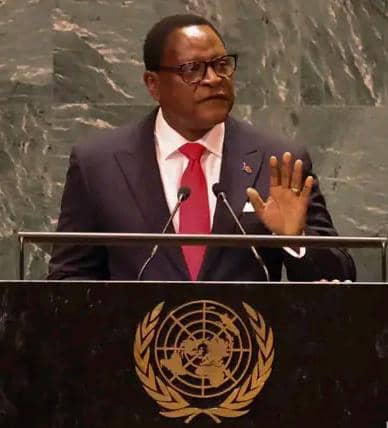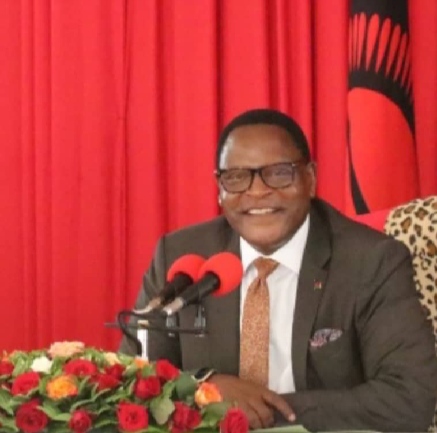President Lazarus Chakwera has called for swift and comprehensive reforms of the United Nations (UN) and other multilateral institutions. Speaking yesterday, Chakwera emphasized the need for these global bodies to adapt to current realities and better serve the nations they represent.
Chakwera stressed that the UN, established in the aftermath of World War II, must evolve to address modern-day challenges such as climate change, global inequality, and emerging geopolitical tensions. “The institutions that were designed to manage world affairs decades ago are no longer fit for purpose,” he said, highlighting the inefficiencies and slow decision-making processes that often hinder global progress.
The President also urged the UN to give more voice and representation to African nations and other underrepresented regions. “It is time for these institutions to reflect the global population and not remain disproportionately influenced by a few powerful countries,” Chakwera noted, calling for fairer representation in decision-making bodies like the UN Security Council.
In addition to the UN, Chakwera pointed to other multilateral organizations, such as the International Monetary Fund (IMF) and the World Bank, which he said must be reformed to ensure that their policies and programs are more inclusive and equitable. He argued that developing countries often bear the brunt of policies that favor wealthier nations, leaving them disadvantaged in global trade and finance systems.
President Chakwera’s call for reform aligns with broader sentiments from leaders across Africa and other developing regions, who have long advocated for a more just and equitable international order. He stressed that these reforms should not only focus on governance structures but also on improving the ability of these institutions to respond swiftly and effectively to global crises.
As the world faces increasing challenges, Chakwera’s message comes as a reminder that the international community must not only reflect on its past successes but also recognize the urgent need for transformation in the face of growing global complexities.




